What Is New Form of Human Civilization Xi Has Been Forging with His Cultural Vision?
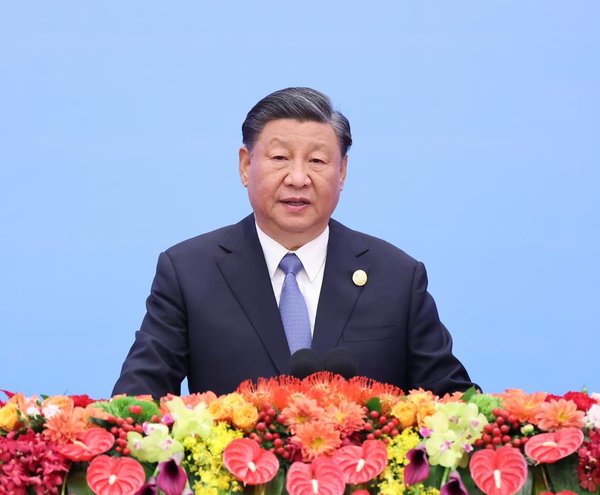 |
| Xi Jinping attends the opening ceremony of the third Belt and Road Forum for International Cooperation and delivers a keynote speech titled "Building an Open, Inclusive and Interconnected World For Common Development" at the Great Hall of the People in Beijing, capital of China, Oct. 18, 2023. [Xinhua/Wang Ye] |
BEIJING, Feb. 4 (Xinhua) — Since the introduction of Xi Jinping Thought on Culture in October 2023, "culture" has become a buzzword throughout China.
In January, a key policy meeting on public communication hailed Xi's cultural thought, stating that it "provides solid ideological guarantees, powerful inspiration, and favorable cultural conditions to make China a stronger country and rejuvenate the Chinese nation on all fronts."
Under Xi's leadership, the Communist Party of China is drawing on culture to enhance its governance and drive China's modernization.
A U.S.-based research institute observed that President Xi is no longer considered merely an inheritor or protector of a great civilization but the creator of one, too.
China's cultural traditions and national conditions determine that Chinese modernization, a new form of human civilization led by Xi, will take a path distinct from the West.
Covering nearly 20 percent of the world's population, it aims to reduce the wealth gap, achieve harmony between material and spiritual aspects, pursue development without sacrificing the environment, and never seek expansion or dominance abroad.
In his youth, Xi read "One-Dimensional Man" by Herbert Marcuse. Seeing the drawbacks of a "one-dimensional" human existence caused by the encroachment of capital in Western modernization, Xi has always hoped to address the imbalances between material and spiritual needs, and between humans and nature. China is committed to the coordinated development of material, political, spiritual, social, and ecological civilizations. Xi refers to this as the distinctive characteristic of the "modern civilization of the Chinese nation."
Xi metaphorically describes the uniqueness of Chinese modernization using physics terminology: Developed Western countries followed a "series" development process. China, seeking to recover the "lost 200 years," must take a development path comparable to a "parallel" process involving the simultaneous development of industrialization, informatization, urbanization, and agricultural modernization.
He designated Shenzhen as the Pilot Demonstration Area of Socialism with Chinese Characteristics. Adjacent to Hong Kong, Shenzhen is a special economic zone established over 40 years ago by Deng Xiaoping. Often referred to as the "city of innovation," Shenzhen, with a population twice that of New York City, offers a glimpse into the future of China's modernization.
Upon arrival in the city, visitors are greeted at the airport by a welcoming quote from Jules Verne: "Anything one man can imagine, other men can make real." Another prominent slogan stands tall in the city's landmark area, Shekou, proclaiming the traditional Chinese wisdom, "Empty talk will do nothing for our country; only solid work will make it flourish."
From electric cars to cutting-edge drones, from low-carbon initiatives to smart-city projects, the city continues to nurture innovation. Parks and libraries can be found every few hundred meters. With a convenient public service system, various social organizations, and a people-serving and business-friendly official team, Shenzhen is a model of the future.
Far north, the Xiong'an New Area near Beijing is a new city of socialist modernization planned by Xi. In May last year, Xi visited this "city of the future" under construction, paying particular attention to the ecological conditions of Baiyangdian Lake. Highlighting water source conservation and green development, its construction embodies the ancient ecological wisdom of "using what nature has to offer and taking it in moderation."
Xi designated Zhejiang as a demonstration area of common prosperity. During his visit to Lizu Village last year, he witnessed the transformation of this once dirty, chaotic, and impoverished village into a clean and beautiful demonstration village of common prosperity. The villagers' income has exceeded the national rural average, and the village is renowned for its rich cultural atmosphere. Xi has engaged in discussions with young entrepreneurs who returned from cities across the country and expressed satisfaction with the part they have played in rural development.
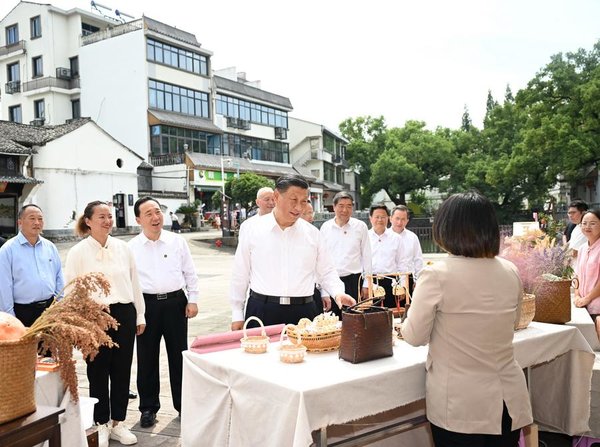 |
| Xi Jinping inspects Lizu Village in Yiwu, east China's Zhejiang Province, Sept. 20, 2023. [Xinhua/Xie Huanchi] |
The new type of modern socialist country led by Xi has effectively debunked the linear historical view that all nations should converge toward a Western model.
On the world stage, Xi has proposed a series of new concepts regarding civilizational exchange and international relations, demonstrating China's commitment to being a builder of world peace, a contributor to global development, and a defender of the international order.
Xi's proposition of building a community with a shared future for humanity reflects the country's commitment to peace and stability. Introduced in 2013, this idea resonates with the Chinese nation's time-honored vision that "the whole world is one big family," envisioning a world where universal harmony prevails. It marks a fresh trajectory for advancing global civilizations, and paves the way for the ultimate realization of the full and free development of every individual, as envisioned by Karl Marx.
Nevertheless, concerns exist that an assertive China could challenge the existing world order. But Xi is optimistic that Chinese civilization's inclusive nature can foster coexistence with other nations marked by "harmony in diversity."
When speaking about "The Art of War" by Sun Tzu with foreign guests, Xi emphasizes that the fundamental message of this classic ancient Chinese military book is the importance of exerting all efforts to avoid war and exercising great caution if conflict becomes inevitable. In line with the Chinese nation's deep-rooted commitment to peace, Xi proposed the Global Security Initiative in a call for joint efforts to maintain world peace and stability.
Since last October, the escalation of the Palestine-Israel conflict has led to a humanitarian disaster. During his interaction with foreign leaders and participation in multilateral events, Xi has repeatedly called for a ceasefire, emphasizing that the fundamental solution to the conflict lies in implementing the two-state solution.
In efforts to de-escalate conflicts and restore peace in the region, China convened and chaired a high-level UN Security Council meeting on the Palestinian-Israeli issue, facilitating the adoption of the first UN Security Council resolution since the outbreak of the conflict. China has sent its special envoy to promote peace talks, increased humanitarian assistance, and extended a helping hand to the people in Gaza at a difficult time.
China also served as a mediator, successfully facilitating the restoration of diplomatic ties between Saudi Arabia and Iran last year. Daniel A. Bell, chair professor of political theory at the University of Hong Kong, commended China's efforts, describing it as "an inspiring example." Large and influential countries can play the role of peacemakers as they have more power and influence to bring warring sides to the table, he said.
One Chinese maxim that Xi frequently mentions during his overseas trips is, "Building people-to-people friendships is crucial for fostering positive state-to-state relations." Under his leadership, China has strengthened and broadened its global partnerships based on principles of equality, openness, and cooperation.
A champion of humanity's shared values, Xi launched the Global Civilization Initiative, urging collaborative efforts to respect the diversity of civilizations and tap into the profound significance of their histories and cultures in the contemporary world. This initiative stands as a robust response to concepts supporting the estrangement, clash, or superiority of civilizations.
Xi's Global Development Initiative emphasizes the importance of prioritizing development and adopting a people-centered philosophy to ensure that "no country is left behind in the process of global modernization."
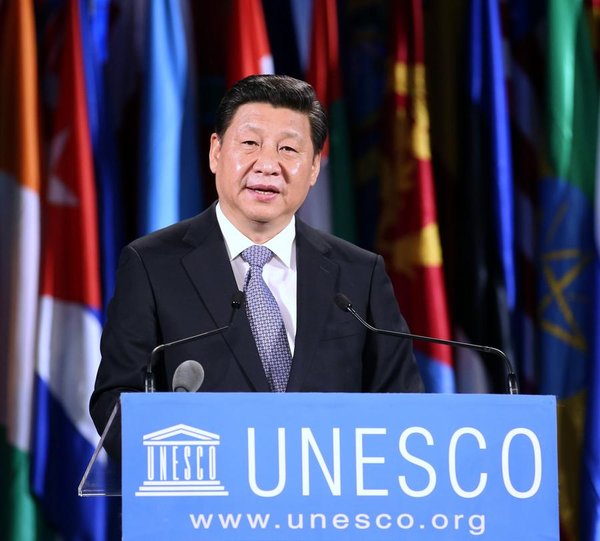 |
| Xi Jinping delivers a speech at the headquarters of the United Nations Educational, Scientific and Cultural Organization (UNESCO) in Paris, France, March 27, 2014. [Xinhua/Yao Dawei] |
To explain the values and sentiments that underpin the Chinese people's dedication to win-win cooperation, Xi draws on ancient Chinese sayings promoting actions for the greater good. The Belt and Road Initiative is a prime example. Sometimes referred to as the modern Silk Road, the initiative has garnered collaboration from more than 150 countries and over 30 international organizations, with nearly a trillion U.S. dollars in investment.
When he was young, Xi once expounded on the Confucian idea of "Ping Tian Xia," or bringing peace and order to the world, which represents the ultimate stage of one's four-level personal pursuit. The other three are cultivating the moral self, managing the family, and governing the state.
Xi said, "Ping Tian Xia" doesn't involve conquering or ruling the world. Instead, it aims to uplift ordinary people from poverty, enabling them to live peacefully with sufficient food and clothing. He said that if all countries pursue peaceful development and strive for unity and harmony, it will bring the world closer to the goal.
When leading his colleagues in paying respects to Mao Zedong's remains to mark the 130th anniversary of Mao's birth last December, Xi underscored that the best way to commemorate the late Chinese leader is to continue to advance the cause he pioneered. Xi cited Mao's words: "We must always strive! We must always forge ahead! Our golden world, bright and splendid, lies ahead!"
"The best inheritance of history is to create a new history, and the greatest tribute to human civilization is to create a new form of human civilization," Xi said.
(Source: Xinhua)
Please understand that womenofchina.cn,a non-profit, information-communication website, cannot reach every writer before using articles and images. For copyright issues, please contact us by emailing: website@womenofchina.cn. The articles published and opinions expressed on this website represent the opinions of writers and are not necessarily shared by womenofchina.cn.

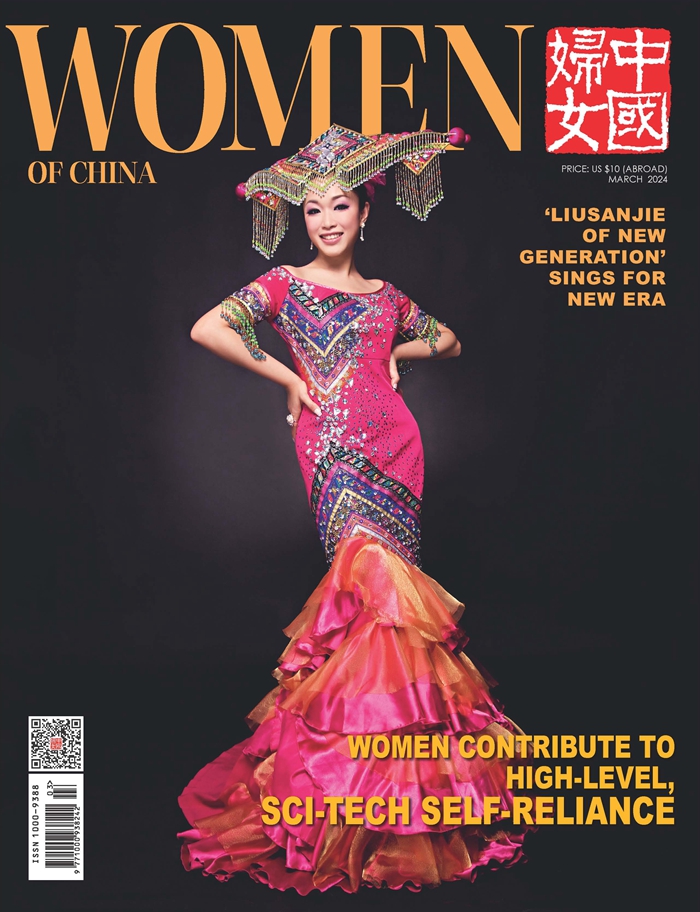
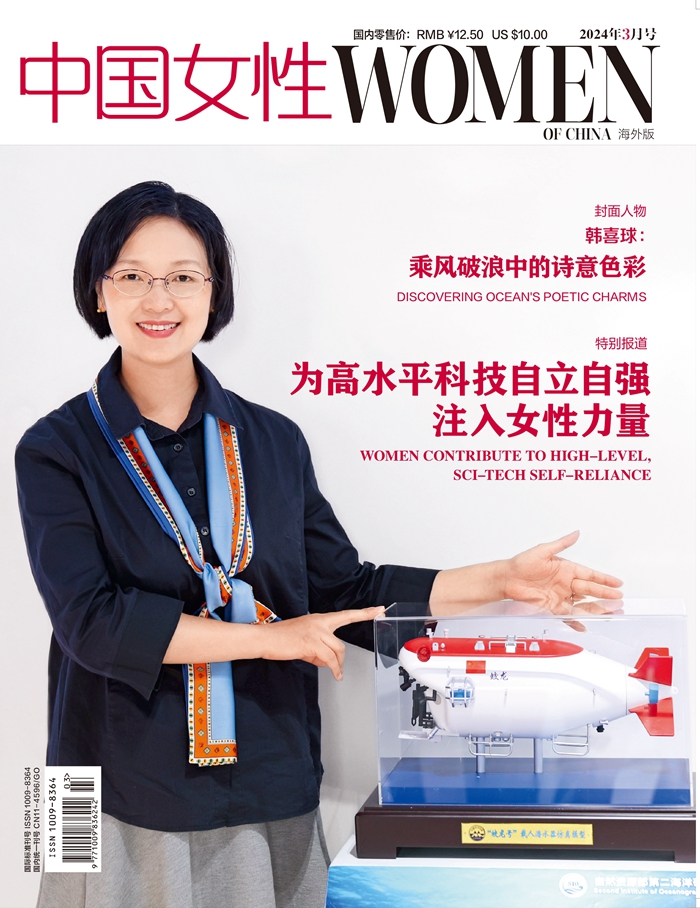

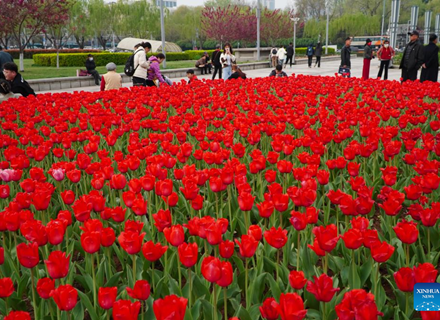
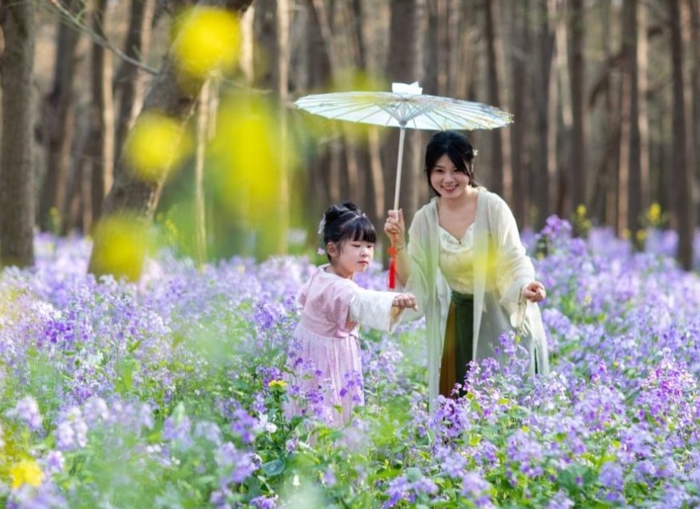


 WeChat
WeChat Weibo
Weibo 京公网安备 11010102004314号
京公网安备 11010102004314号